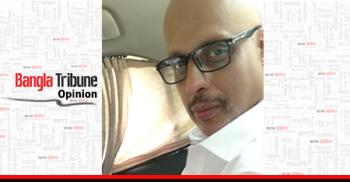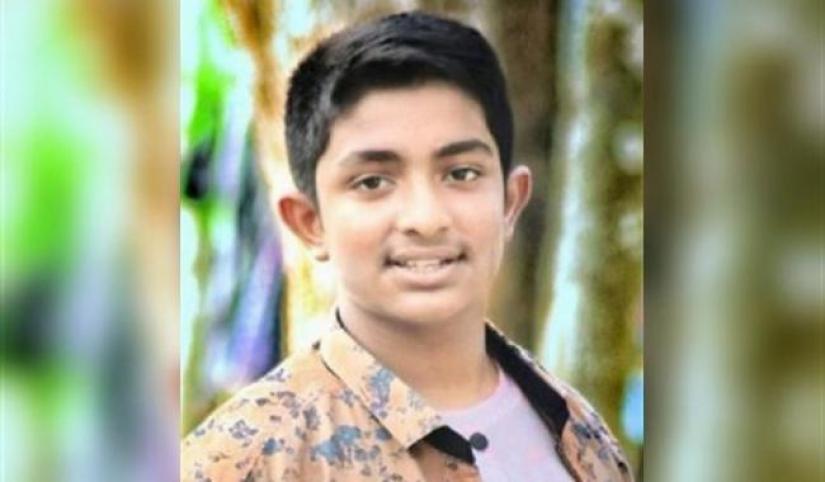 There is a commercial shown on TV, where a man waiting at an airport, throws his weight around and when the girl at the airline desk cannot accommodate his request, shouts: “Do you know who I am!” The girl’s initial reaction is that of suppressed revulsion but she takes a moment to hold her anger, takes a sip from a cup of tea and composing herself, provides a fitting riposte to the man, saying on the PA system: “This person does not know who he is, if anyone knows him then please step forward.”
There is a commercial shown on TV, where a man waiting at an airport, throws his weight around and when the girl at the airline desk cannot accommodate his request, shouts: “Do you know who I am!” The girl’s initial reaction is that of suppressed revulsion but she takes a moment to hold her anger, takes a sip from a cup of tea and composing herself, provides a fitting riposte to the man, saying on the PA system: “This person does not know who he is, if anyone knows him then please step forward.”
A punchy advert for the tea of course, which has given the girl the strength to answer back to the imperious man and also maintain her dignity.
The question is, in real life, how many of us can actually stand up and give the right answer to the countless ‘I am so important’ type of people flaunting their supercilious attitude?
The death of sixth-grader Titas on an ambulance is a reminder that society is starkly divided between two categories —VIPs and commoners.
A critically injured Titas was brought to the ferry jetty in Madaripur to be taken to Dhaka but the ferry had orders to wait for a joint secretary who was also on the way to the capital.
In the almost three-hour wait, the student lost a lot of blood and by the time the government official had arrived and the ferry started, he was near death.
Titas died on the way!
As there is mass outrage in all layers of society, the abominable VIP culture, which has taken a firm root in our ethos, becomes only too apparent.
Several questions arise over the incident along with a feeling of rage because the joint secretary in question has not formally apologised or made any comment on the matter.
Was the government official told of the emergency?
The first question to ask, when the ambulance carrying the boy came to the ferry jetty, did the ferry manager tell the government official who was still far away that there was an emergency case of an injured boy?
As per reports, we find that instructions came from the official to hold the ferry until he arrived. Even if there wasn’t an injured boy waiting to be taken to the hospital, how justified is it to prevent the normal operation of a ferry just because a government official will be late in coming to the jetty?  We won’t be surprised if suspending ferry operations of important people is the norm at all the jetties.
We won’t be surprised if suspending ferry operations of important people is the norm at all the jetties.
It has come to light this time because of a death, otherwise, the joint secretary in question would have had his way, and the system would have gone on uninterrupted.
Shockingly, there has not been any apology from anyone over the delay of the ferry and the death of the boy which reinforces the concept that those who are in government posts feel a sense of impunity even when they have severely transgressed ethical boundaries.
The VIP swagger that people have to put up with daily
Now come to the VIP strut that Dhaka residents have to put up with daily. The traffic police stops any car which has black tinted glasses; however, countless government cars have black glasses and no one ever stops them. The rationale used is that often government cars carry people of top importance and therefore, their glasses are darkened. Point taken, but that does not mean that so many vehicles need to have darkened glasses.
Take the habit of using the obnoxious horn by government vehicles on the road which has two purposes: to intimidate the other cars and also inform the traffic that there is a VIP in waiting and therefore, the cars of a certain lane have to be allowed to go first.
The wrong side of driving is still common and it’s done imperiously with an attitude that if someone comes to stop, they will be run over.
Being a driver myself, I regularly encounter government cars which are too impatient to maintain a steady movement of vehicles and keep on using a terrible horn which is only permitted for official vehicles.
The attitude is, “Make way this very minute, or else…”
Correct me if I am wrong — the honking and the pressing are done simply to terrify the other car to give way.
The problem lies in our understanding that certain people should be given more preference and also in the belief that if someone grovels to a person in power, then certain privileges can be attained.
Maybe the ferry manager wanted to prove to the government official that he has kept his word and made the ferry wait. In such cases, a smile or a pat from the high ranking official can give field level workers a sense of pride and respect among his/her peers.
There is little concern that to please governments high up countless people are made to suffer.
The flaw goes back to the colonial days when the rulers and the ruled were divided, creating a stark division.
From first-class berths on trains to usage of clubs and social premises, one section was completely out of bounds for the locals, thus creating a sense of superiority and entitlement among the ruling class.
That flawed sentiment lingers. One is reminded of a recent incident when locals in a central Dhaka city area found the road in their area occupied by building materials for the construction of a house belonging to a government official.
Reportedly, whenever the people tried to press for the removal of the construction materials from the road, the government official used the ‘I am the power’ card, often disregarding the pleas from the local police.
However, later, the materials were moves when Bangla Tribune carried the report.
Bangladesh has made remarkable strides from the austerity-driven, privation-riddled period of the 70s and 80s but certain social systems, prejudiced to the core, need immediate rectification.
Those in powerful posts should be given certain privileges but not by making the rest of us feel that we are expendable.
Unfortunately, no one stands up against such atrocious behavior.
Towheed Feroze is a news editor at Bangla Tribune and teaches at the University of Dhaka.


